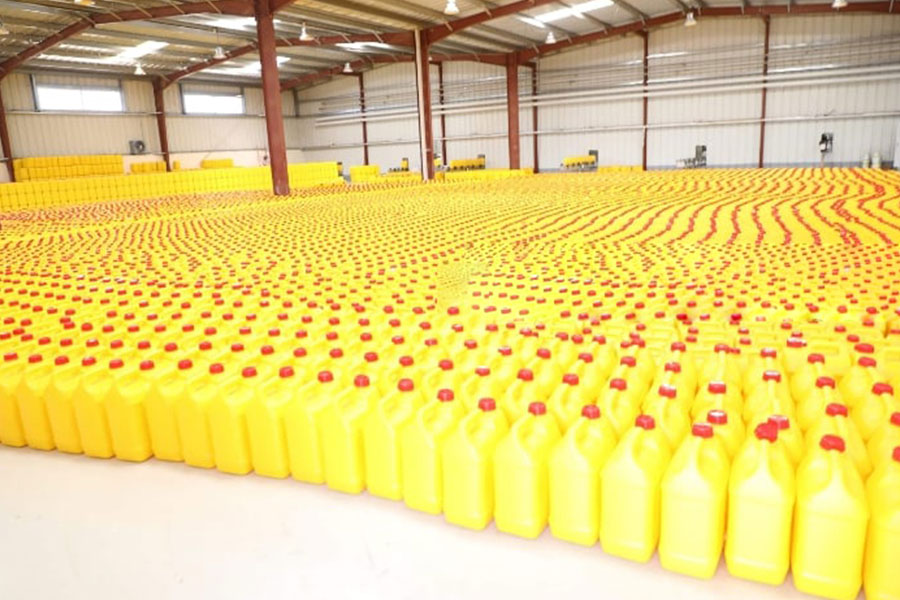
Apr 19 , 2025
By Jayati Ghosh
US President Donald Trump's sweeping tariffs have unleashed economic chaos, roiling stock and bond markets and triggering panic around the world, especially in lower-income countries that rely heavily on exports to the United States (US). The result could be an entirely manufactured global recession, with the developing world bearing the brunt.
The brief calm in financial markets following Trump's abrupt announcement of a 90-day "pause" on most of his "reciprocal" tariffs – excluding those on Chinese imports, which he raised to 145pc – has proven premature. While some billionaires and loyalists may have made a killing by correctly interpreting Trump's social media posts ahead of his sudden policy reversal, the disruptions to global trade and finance caused by his tariffs continue to pose serious risks.
Despite the pause on some tariffs, a universal 10pc tariff on all US imports remains in effect, along with sector-specific tariffs of 25pc on steel, aluminum, automobiles, and auto parts. There are new exemptions for smartphones, computers, and other electronic devices, even as Trump has also threatened new duties on pharmaceuticals, semiconductors, copper, and lumber. Taken together, these measures will reduce the availability of imported goods, raise prices for US consumers, and impose steep costs on exporting countries.
But ultimately, the tariffs imposed on each country will depend on future negotiations, where the US is expected to play hardball. Trump has already made clear his disdain for foreign leaders, boasting that many were "kissing my ass" and willing to "do anything" to reverse the tariffs. As a result, the final scope of Trump's tariffs remains uncertain.
Most critically, Trump's latest tariff hike on Chinese imports all but ensures that the Sino-American trade war will continue to escalate. The increase to 145pc is largely symbolic – a tit-for-tat move after China raised its own tariffs – since the previous 104pc rate had already made most Chinese imports commercially unviable. In effect, the administration has signalled its intent to shut down trade with China.
The implications for US consumers and domestic producers that rely on Chinese inputs are profound. Trump's open distrust of goods from Chinese-owned factories – even when routed through third countries – has forced governments hoping to maintain access to the US market to scramble for alternative sourcing and production options. The mere expectation of such shifts has already severely disrupted global supply chains.
Uncertainty has always been a major deterrent to economic activity, and the unpredictability of the Trump administration's policies, marked by erratic decision-making, sudden reversals, and on-again, off-again announcements, has made future developments nearly impossible to anticipate using standard risk models. Trump's preference for shock-and-awe tactics, reminiscent of other "strongmen" like Indian Prime Minister Narendra Modi, compounds the problem.
Rising uncertainty will inevitably discourage investment, as businesses shelve new projects and postpone planned expansions while waiting to see how events unfold. The subsequent slowdown could weigh heavily on US growth and employment, with consequences that extend far beyond the direct economic impact of Trump's tariffs.
Worse still, the US cannot win its trade war with China. The Chinese government clearly knows this and is playing the long game. At any moment, the two superpowers' economic war of attrition could spiral into a major financial crisis or even a military confrontation.
The alarm bells are already ringing. The falloff in demand for US Treasury bills, long considered the world's safest asset, signals diminishing confidence in America's economic leadership. The simultaneous drop in US stocks, bonds, and the dollar points to growing doubts about US Treasuries' ability to serve as the global benchmark for asset prices, even as they remain the preferred vehicle for high-volume financial transactions.
As with previous self-inflicted economic crises, the US economy will undoubtedly suffer, but the heaviest burden will fall on the developing world. Cancelled or delayed export orders are already undermining production and fueling unemployment. Financial volatility is threatening economic stability long before the full impact of Trump's tariffs can be felt.
These developments are already reflected in the yield spreads on developing countries' sovereign bonds, particularly those of lower- and middle-income economies. In the month leading up to April 9, emerging-market sovereign dollar debt values fell by an average of 2.9pc, while average yields rose to 7.4pc. The sovereign bonds of debt-stressed countries like the Maldives, Sri Lanka, Gabon, and Zambia dropped by more than 10pc.
Unfortunately, developing countries are all too familiar with this kind of financial and economic turmoil. For decades, many have been trapped in a cycle of currency depreciation, rising borrowing costs, strained public finances, forced spending cuts, and domestic market instability that constrained investment and private-sector activity.
The lessons for developing economies are clear. Not only is globalised trade being upended, but financial globalisation is bound to become even less appealing to countries seeking stable, long-term financing to support their development goals.
Trump is determined to dismantle the global economic order, which, in his view, allows other countries to take advantage of the US. In response, many developing economies will likely begin to reconsider their participation in – and subordination to – an unequal system that no longer serves their interests. But the road ahead will remain perilous until a credible alternative takes shape.
PUBLISHED ON
Apr 19,2025 [ VOL
26 , NO
1303]


Commentaries | Nov 09,2019


Radar | Jul 17,2022

Fortune News | Apr 17,2021

Commentaries | May 11,2024

Photo Gallery | 177796 Views | May 06,2019

Photo Gallery | 168009 Views | Apr 26,2019

Photo Gallery | 158714 Views | Oct 06,2021

My Opinion | 137011 Views | Aug 14,2021
Commentaries | Oct 25,2025

Dec 22 , 2024 . By TIZITA SHEWAFERAW
Charged with transforming colossal state-owned enterprises into modern and competitiv...

Aug 18 , 2024 . By AKSAH ITALO
Although predictable Yonas Zerihun's job in the ride-hailing service is not immune to...

Jul 28 , 2024 . By TIZITA SHEWAFERAW
Unhabitual, perhaps too many, Samuel Gebreyohannes, 38, used to occasionally enjoy a couple of beers at breakfast. However, he recently swit...

Jul 13 , 2024 . By AKSAH ITALO
Investors who rely on tractors, trucks, and field vehicles for commuting, transporting commodities, and f...

Oct 25 , 2025
The regulatory machinery is on overdrive. In only two years, no fewer than 35 new pro...

Oct 18 , 2025
The political establishment, notably the ruling party and its top brass, has become p...

Oct 11 , 2025
Ladislas Farago, a roving Associated Press (AP) correspondent, arrived in Ethiopia in...

Oct 4 , 2025
Eyob Tekalegn (PhD) had been in the Governor's chair for only weeks when, on Septembe...

Oct 25 , 2025 . By YITBAREK GETACHEW
Officials of the Addis Abeba's Education Bureau have embarked on an ambitious experim...

Oct 26 , 2025 . By YITBAREK GETACHEW
The federal government is making a landmark shift in its investment incentive regime...

Oct 27 , 2025
The National Bank of Ethiopia (NBE) is preparing to issue a directive that will funda...

Oct 26 , 2025 . By SURAFEL MULUGETA
A community of booksellers shadowing the Ethiopian National Theatre has been jolted b...